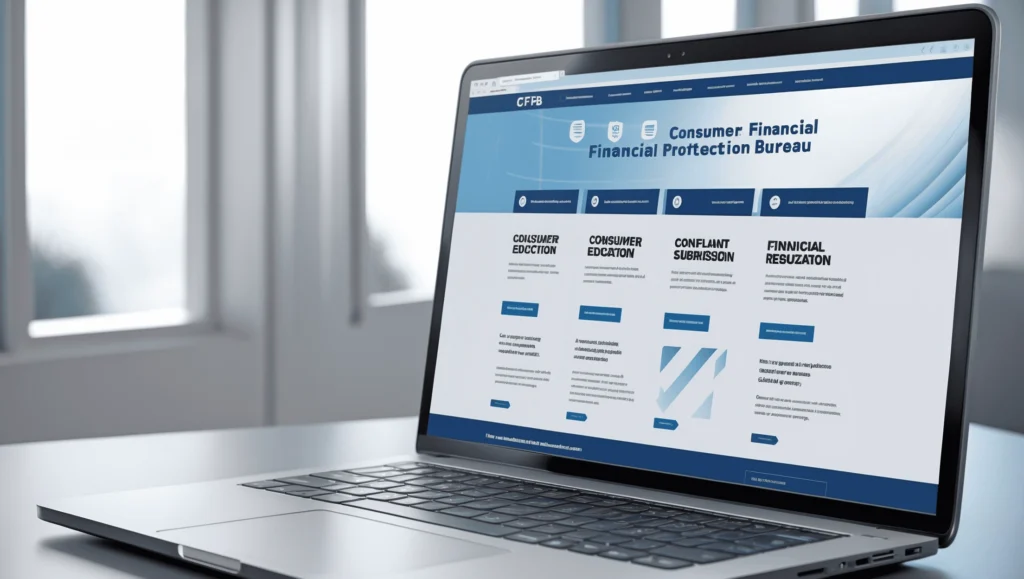High-interest payday loans can create significant financial challenges for borrowers. These short-term loans often come with extremely high interest rates, making repayment difficult. Many people find themselves trapped in a cycle of debt, struggling to pay off the loan while covering basic living expenses.
Borrowers often seek payday loan consolidation to break free from this burden. Consolidation combines multiple payday loans into a single loan with a lower interest rate and more manageable repayment terms. This process can help reduce stress, simplify debt management, and improve financial stability over time.
Addressing payday loan debt is crucial for long-term financial health. By consolidating and eliminating these loans, borrowers can work toward rebuilding their credit and achieving greater financial freedom. For more information on consumer protections and debt relief options, visit the Consumer Financial Protection Bureau.
Understanding High-Interest Payday Loans and Their Impact
What Are Payday Loans and How Do They Work?
Payday loans are short-term, high-interest loans designed for quick cash needs. Borrowers typically repay these loans by their next paycheck, which makes the repayment period very short. The process is straightforward: you apply, get approved, and receive funds quickly, often within a day.
However, these loans come with extremely high-interest rates, often exceeding 300% APR. In addition to the high rates, payday lenders charge fees for borrowing, which can add up quickly. For instance, a $500 loan might carry fees of $75 or more, making it expensive to repay on time.
For more details on the risks of payday loans, visit the Consumer Financial Protection Bureau (CFPB).
The Financial Burden of High-Interest Payday Loans
One of the biggest challenges with high-interest payday loans is the cycle of debt they create. Borrowers who can’t repay the loan in full often end up rolling it over, leading to additional fees and growing debt. This cycle can trap individuals in financial hardship for months or even years.
The long-term impact of payday loans goes beyond fees. Defaulting on these loans can severely damage your credit score, making it harder to qualify for other forms of credit. Additionally, constant stress from mounting debt can affect your overall financial health and well-being.
If you’re struggling with payday loans, consider reaching out to nonprofit credit counseling services for guidance on managing your debt effectively.

Exploring Payday Loan Consolidation Options
What Is Payday Loan Consolidation?
Payday loan consolidation is a financial strategy that combines multiple high-interest payday loans into a single loan. This approach simplifies repayment by replacing several high-interest debts with one, often at a lower interest rate.
The benefits of consolidating payday loans include reduced monthly payments, lower overall interest costs, and a more manageable repayment schedule. Debt consolidation can also help borrowers avoid late fees and penalties that accumulate with missed payments.
Debt consolidation companies play a crucial role in this process. They work with lenders to negotiate better terms and often assist borrowers in creating a structured repayment plan. These companies act as intermediaries, helping borrowers stay on track while avoiding the stress of dealing directly with payday lenders.
Learn more about how debt consolidation works.
Types of Consolidation Options
Personal Loans for Debt Consolidation
Personal loans are a common method for consolidating high-interest payday loans. These loans typically have lower interest rates and more extended repayment periods than payday loans. By securing a personal loan, borrowers can pay off their payday loans in full and focus on repaying a single debt.
Using a Credit Card Balance Transfer
If eligible, transferring payday loan balances to a credit card with a 0% introductory APR can be a cost-effective solution. This option allows borrowers to reduce or eliminate interest charges during the promotional period. However, it’s essential to pay off the balance before the regular APR applies.
Check credit card options offering balance transfers.
Debt Management Plans (DMPs) from Nonprofit Credit Counselors
Nonprofit credit counseling agencies provide debt management plans (DMPs) tailored to borrowers with high-interest payday loans. A DMP consolidates debts into a single monthly payment, often with reduced interest rates negotiated by the agency. This structured approach helps borrowers pay off their loans over time without accumulating additional fees.
Find trusted nonprofit credit counselors near you.
By exploring these payday loan consolidation options, borrowers can regain control of their finances and work toward eliminating high-interest payday loan debt.
Steps to Eliminate Payday Loan Debt Effectively
Create a Realistic Budget
A realistic budget is your first step toward breaking free from high-interest payday loans. Start by tracking all your expenses to identify where your money is going. Focus on necessary expenses like rent, utilities, and groceries while reducing discretionary spending.
Once you understand your spending habits, prioritize loan repayments. Allocate a portion of your income to pay off payday loans as quickly as possible. Setting clear financial goals can also help you stay motivated. For example, aim to eliminate one loan at a time or reduce your debt by a specific percentage each month.
Use budgeting tools or apps to make tracking and managing expenses easier. Consider resources like CFPB’s budget worksheet to help organize your finances.
Negotiate with Payday Lenders
Negotiating with payday lenders can significantly reduce your financial burden. Contact your lender to request lower interest rates or extended repayment terms. Many lenders are open to adjusting terms if it increases the likelihood of repayment.
Familiarize yourself with state payday loan regulations. These laws often cap interest rates or limit loan amounts, protecting you from predatory practices. For more information, visit the National Consumer Law Center.
If negotiation feels overwhelming, a credit counselor can assist. They can communicate with lenders on your behalf to establish manageable terms.
Seek Professional Financial Assistance
Professional financial assistance is a valuable resource for dealing with high-interest payday loans. Start by contacting nonprofit credit counseling agencies. These organizations offer free or low-cost services to help you create a repayment plan tailored to your needs.
Another option is exploring financial hardship programs. Many payday lenders provide programs that reduce monthly payments or temporarily suspend interest accrual during financial difficulties. Be sure to inquire about these options directly with your lender.
Additionally, consider debt consolidation loans as a way to simplify your repayments. These loans combine multiple payday loans into one with a lower interest rate, reducing the overall financial strain. For guidance, explore reputable resources like the Debt.org website.
By taking these steps, you can regain control of your finances and work toward eliminating payday loan debt for good.

Alternatives to Payday Loans for Financial Stability
Affordable Loan Alternatives
When facing high-interest payday loans, consider switching to more affordable options. Personal loans with lower interest rates can be a better choice. These loans often have longer repayment periods and lower annual percentage rates (APRs). Additionally, borrowing from credit unions or even trusted family and friends can provide financial relief without the burden of excessive fees. Credit unions often offer small-dollar loans with more favorable terms designed to help individuals in financial distress.
For more information on credit unions and personal loans, visit the National Credit Union Administration (NCUA).
Building an Emergency Fund
Avoiding high-interest payday loans in the future starts with building a solid emergency fund. Begin by setting aside small amounts consistently. Even saving $10–$20 per week can accumulate into a helpful safety net over time. This fund can cover unexpected expenses, reducing your reliance on short-term loans.
Improving financial literacy is another key to long-term stability. Learning to budget, prioritize expenses, and use financial tools can prevent financial setbacks. For tips on saving and budgeting, check out MyMoney.gov.
Understanding Regulatory Protections
Knowing your rights as a borrower is crucial when dealing with payday loans. The Consumer Financial Protection Bureau (CFPB) offers resources to help consumers understand and manage payday loan debt. They also work to protect borrowers from predatory lending practices.
Some lenders provide financial hardship programs for borrowers who are struggling to repay. These programs may offer extended repayment terms or reduced interest rates. If you’re facing challenges with high-interest payday loans, ask your lender about available options.
For more on borrower protections and financial tools, visit the Consumer Financial Protection Bureau (CFPB).
Improving Your Credit Score After Payday Loan Debt
The Connection Between Payday Loans and Credit Scores
Payday loans can significantly impact your credit history, often for the worse. These short-term, high-interest loans typically do not report directly to the credit bureaus. However, if a payday loan leads to a default or collection account, it can severely affect your credit score. Unpaid payday loans can stay on your credit report for up to seven years, making it difficult to rebuild your financial standing. The higher your credit utilization rate, the more likely you are to see a drop in your score.
Rebuilding your credit score after payday loan debt is possible, but it takes time and effort. Start by paying off your payday loan debt. Once it’s paid, your credit score may improve slightly, but the key to long-term recovery is to avoid falling back into the payday loan cycle. Focus on re-establishing positive credit behaviors.
Practical Steps to Enhance Credit
To begin improving your credit, it’s essential to pay bills on time. Late payments can further damage your credit score, so setting up automatic payments or reminders can be a helpful strategy. Make sure to prioritize paying down existing debt, such as credit card balances, as high credit utilization can harm your score. Try to keep your credit utilization below 30%. This is one of the quickest ways to boost your credit score after handling payday loan debt.
Another vital step is monitoring your credit reports for errors. Mistakes on your credit report, such as inaccurate late payments or incorrect balances, can lower your score. Regularly checking your credit report ensures you catch these mistakes early and dispute them promptly. By following these steps, you can gradually rebuild your credit and move past the damage caused by high-interest payday loans.
For further resources on how payday loans can affect your credit, check out the Consumer Financial Protection Bureau for detailed information.

Conclusion
Addressing high-interest payday loan debt is crucial for regaining financial stability and peace of mind. High-interest payday loans can lead to a cycle of debt that’s difficult to break. By taking action, you can prevent further financial strain and build a path to recovery. The sooner you tackle payday loan debt, the sooner you can focus on your long-term financial goals. Taking actionable steps, such as consolidating your debt, negotiating with lenders, or seeking professional advice, can help you regain control over your finances. These efforts will put you in a stronger position to avoid future debt and improve your credit. If you’re unsure where to start, there are resources available to guide you. The Consumer Financial Protection Bureau (CFPB) offers valuable tools and advice on managing payday loan debt. Nonprofit credit counseling agencies can also assist you in creating a manageable repayment plan. Take the first step today to break free from high-interest payday loans and work toward a secure, debt-free future.

